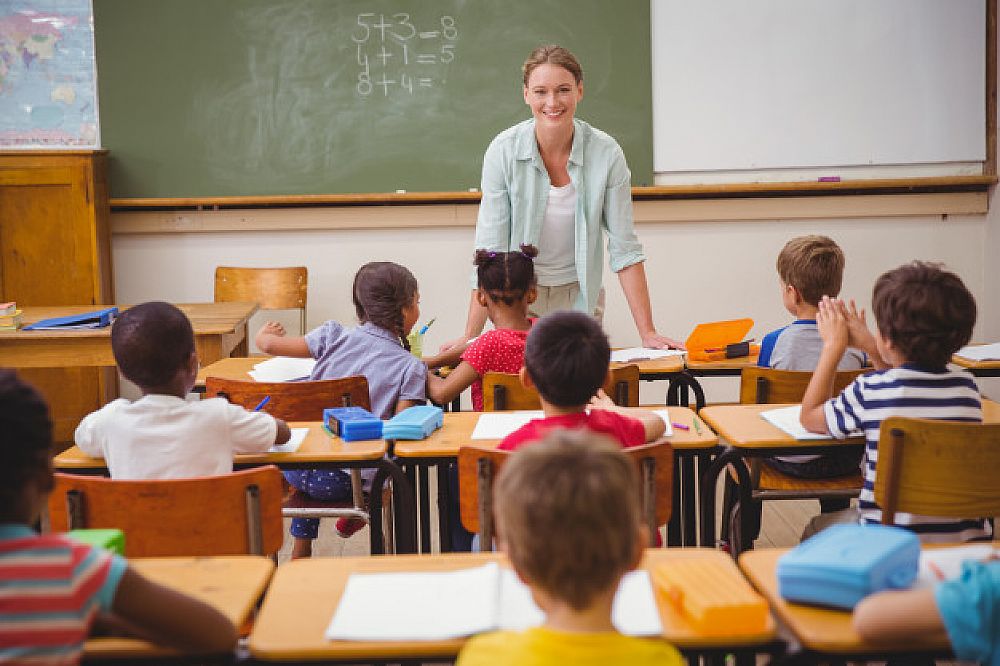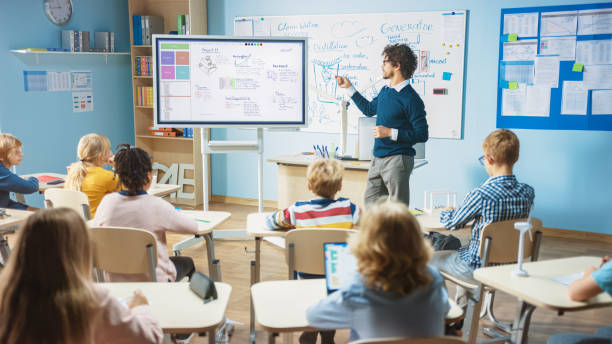Discover the Best Primary Science Tuition Singapore for Your Learning Journey
Discover the Best Primary Science Tuition Singapore for Your Learning Journey
Blog Article
Exploring the Various Mentor Techniques in Primary Science Education And Learning Today
The landscape of key scientific research education is progressing, with different teaching techniques gaining importance in modern classrooms. Inquiry-based understanding, hands-on experiments, and the integration of innovation are redefining just how instructors involve young minds. Furthermore, joint methods and differentiated direction are being utilized to satisfy the diverse requirements of pupils, improving both engagement and understanding. As we take a look at these methods, inquiries develop concerning their performance and the effects for future instructional techniques. What might these shifts in method mean for the future generation of learners?
Inquiry-Based Learning
Inquiry-Based Discovering (IBL) is an instructional technique that motivates trainees to check out clinical ideas with questioning, investigation, and hands-on experimentation. This technique emphasizes the duty of pupils as energetic individuals in their discovering, promoting important thinking and problem-solving skills. By engaging with real-world inquiries, trainees end up being motivated and curious, which enhances their understanding of clinical principles.
In IBL, teachers act as facilitators, leading pupils as they navigate their questions instead than supplying information straight. This student-centered technique permits differentiation, suiting different learning designs and paces. Trainees develop abilities in creating hypotheses, making experiments, and examining data, which are critical for clinical proficiency.
Additionally, IBL promotes collaboration amongst trainees, encouraging them to share concepts and findings. This collective query advertises social skills and a feeling of area within the classroom. Furthermore, the procedure of questions encourages resilience, as trainees learn to accept failing as a stepping rock towards understanding.
Hands-On Experiments
Hands-on experiments are a crucial component of efficient scientific research education, enhancing the principles of inquiry-based understanding. These experiments allow students to engage straight with clinical concepts, fostering a deeper understanding through experiential knowing. By manipulating products and observing end results, young students can realize abstract theories in concrete methods.
Such tasks promote essential thinking and problem-solving skills, as pupils hypothesize outcomes, conduct experiments, and evaluate results. This process motivates them to ask inquiries, improve their understanding, and create a clinical mindset. Moreover, hands-on experiments can be customized to varied discovering designs, guaranteeing that all trainees have the chance to engage meaningfully with the material.
In addition, hands-on experiments often motivate cooperation among peers, advertising synergy and interaction skills. Functioning in teams allows trainees to share ideas, review searchings for, and pick up from one an additional, which boosts their general educational experience.
Incorporating hands-on experiments into the primary scientific research educational program not only enriches the learning setting yet likewise cultivates a lifelong rate of interest in scientific research. By proactively taking part in their education, trainees are more probable to establish a passion for scientific inquiry that expands beyond the class.

Innovation Assimilation
Incorporating technology into key science education has ended up being significantly important in promoting trainee involvement and boosting finding out outcomes. Using electronic devices, such as interactive simulations, digital laboratories, and educational software program, gives pupils with possibilities to discover clinical concepts in ingenious methods. These resources help with a deeper understanding of intricate subjects by allowing learners to picture and manipulate variables that would be impractical in a conventional classroom setting.
Moreover, modern technology combination motivates personalized learning experiences. Trainees can progress at their very own rate, taking another look at difficult principles through multimedia sources, which satisfy different knowing styles. This versatility not only sustains specific growth but also cultivates a sense of autonomy in students.
In addition, innovation functions as a bridge to real-world scientific research, linking trainees with current research and expert payments. Access to scientific journals and on-line databases widens trainees' perspectives on scientific questions and promotes vital thinking abilities.
Collaborative Learning
Collaborative discovering plays an important duty in main science education and learning by promoting synergy and communication abilities among trainees. This strategy motivates students to work with each other, share understanding, and participate in analytical, which boosts their understanding of scientific concepts. By taking part in team tasks, students find out to articulate their concepts, listen to varied viewpoints, and work out remedies, all of which are crucial abilities in both real-world and academic contexts.

Research suggests that collaborative knowing can bring about enhanced motivation and engagement in scientific research subjects, as trainees locate enjoyment in common experiences (primary science tuition Singapore). Additionally, this method prepares pupils for future collaborative endeavors, furnishing them with the abilities essential for effective team effort in greater education and expert settings. Inevitably, embracing collective discovering in primary science education can dramatically improve the learning experience and promote a much deeper understanding of clinical questions
Differentiated Instruction

Set apart instruction can show up in different means, such as varying the content, procedures, or products of discovering. For instance, instructors might use tiered projects that give varying levels of intricacy, permitting students to function at their respective readiness degrees. Furthermore, versatile organizing strategies can help with partnership among pupils with various abilities, fostering peer knowing.
Evaluation plays a critical duty in this approach, as it informs instruction and assists teachers comprehend each pupil's unique needs. Formative assessments, such as observations and quizzes, can direct click for more info instructors in changing their techniques to improve discovering results. primary science tuition Singapore. Eventually, by carrying out set apart direction in main science education and learning, instructors can grow a much more equitable and effective knowing atmosphere, empowering all students to reach their complete capacity in recognizing this hyperlink clinical phenomena
Verdict
In summary, the diverse training approaches in primary science education and learning, consisting of inquiry-based knowing, hands-on experiments, technology integration, collaborative learning, and set apart direction, collectively add to a much more reliable discovering atmosphere. These methods advertise vital thinking, analytic abilities, and a deeper understanding of scientific concepts. By carrying out these techniques, instructors can develop appealing and encouraging classrooms that address the varied requirements of students, inevitably fostering a long-lasting passion in scientific research and improving academic success.
Inquiry-Based Learning (IBL) is an instructional approach that motivates trainees to explore scientific principles through wondering about, investigation, and hands-on testing.Collaborative discovering plays a vital function in key science education by cultivating team effort and interaction skills among trainees.Study indicates that collective knowing can lead to boosted inspiration and engagement in science topics, as pupils find pleasure in common experiences.In cultivating an inclusive knowing atmosphere, differentiated direction arises as a vital strategy to accommodate the diverse requirements and capacities of students in main scientific research education and learning. Inevitably, by implementing distinguished direction in key scientific research education and look these up learning, educators can grow a more efficient and equitable discovering atmosphere, equipping all trainees to reach their complete potential in comprehending scientific phenomena.
Report this page